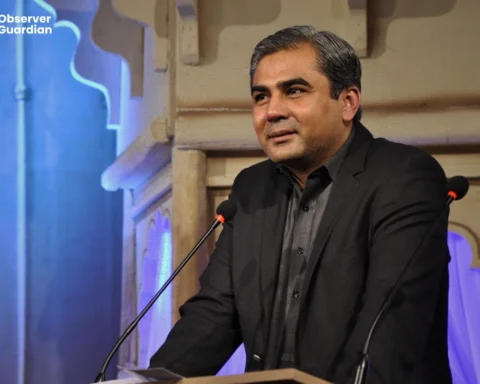Global policymakers gathering in Washington this week expressed cautious relief that the U.S.-led economic order remains intact for now, despite Donald Trump’s inward-focused policies. At the IMF and World Bank spring meetings, discussions were dominated by trade and U.S.–China relations, but deeper concerns about the stability of the U.S. dollar and the future of international financial institutions loomed.
Many officials welcomed Trump’s softer stance on firing Federal Reserve Chair Jerome Powell, which signaled ongoing U.S. commitment to the dollar’s global role. U.S. Treasury Secretary Scott Bessent’s calls to reform the IMF and World Bank according to U.S. priorities were also seen as a positive indication that Washington was not withdrawing from these Bretton Woods institutions.
However, uncertainty persists. Austria’s central bank governor Robert Holzmann voiced cautious optimism, warning that future shifts in U.S. policy could still destabilize the system.
At the core of concerns is the lack of a viable alternative to the U.S. as the world’s financial anchor — a scenario known as the Kindleberger Trap. While the euro has gained some ground, its structural weaknesses and geopolitical risks, along with Japan’s smaller economy and China’s tightly controlled currency, mean the dollar remains irreplaceable.
Officials stressed that the IMF and World Bank’s survival heavily relies on U.S. participation. Any U.S. withdrawal could severely undermine global financial stability, given the trillions in outstanding bonds and loans that rely on U.S. backing.
Some experts suggested that recent market turmoil, including sharp sell-offs in U.S. bonds, stocks, and the dollar, might have forced the Trump administration to recalibrate its approach, highlighting the risks of undermining key institutions like the Fed.
Key Points:
-
General Sentiment: Relief that the U.S.-centric economic system remains stable — for now.
-
Main Concerns: Stability of the U.S. dollar and future of IMF/World Bank.
-
Positive Signs: Trump softened attacks on Fed Chair Powell; U.S. engagement with IMF and World Bank reforms.
-
Underlying Fears: No real alternative to the U.S. as global financial leader (Kindleberger Trap).
-
Euro’s Limitations: Euro still too weak and politically unstable to replace the dollar.
-
Institutional Dependency: IMF and World Bank heavily reliant on U.S. support.
-
Market Influence: Financial market reactions acted as a reality check for U.S. policy shifts.
While global policymakers found some short-term comfort in the U.S.’s continued support for the international economic order, deeper vulnerabilities remain. Without a strong alternative to the dollar and U.S.-backed institutions, the world economy remains heavily dependent on U.S. stability and leadership — a fragile arrangement that could be tested again in the near future.







